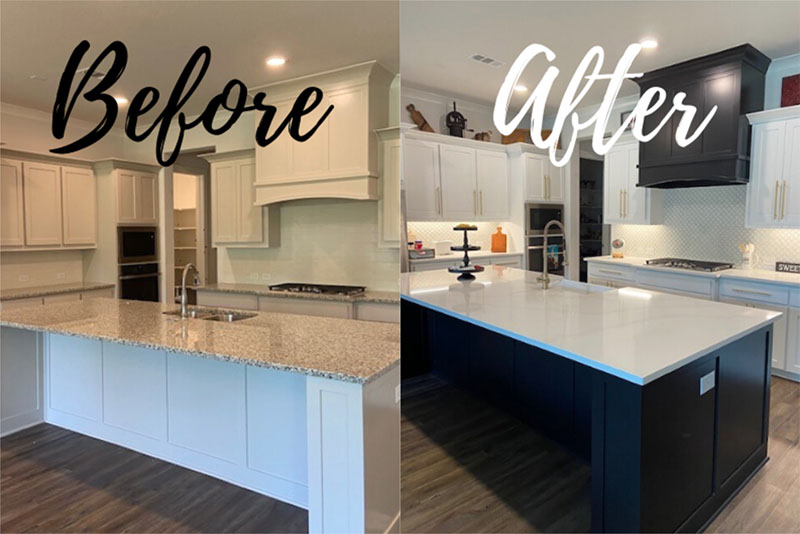What is Quartz, Really? Busting Myths about Engineered Stone
When homeowners begin their kitchen renovation journey, they’re often bombarded with terminology that can be confusing. One of the most misunderstood materials in the countertop world is quartz. Despite its popularity, many people don’t realize that quartz countertops aren’t actually slabs of natural quartz crystal.
This misunderstanding leads to questions about durability, value, and authenticity. As industry experts with many years of experience, we at Moreno Granite want to clear up the confusion and help you make an informed decision about your countertop investment.

What Quartz Countertops Actually Are
Quartz countertops are engineered stone products made from approximately 90-94% ground natural quartz crystals combined with polyester resins, pigments, and occasional recycled materials. The natural quartz mineral—one of the hardest minerals on earth—gives these countertops their remarkable strength and durability.
The manufacturing process transforms these components into slabs through vacuum compression, vibration, and heat treatments. This engineering process is what gives quartz countertops their non-porous nature and consistent appearance—qualities that natural stone often lacks.
The Engineering Advantage
The engineered nature of quartz countertops isn’t a downside—it’s actually their greatest strength. By controlling the manufacturing process, producers can:
- Create a completely non-porous surface resistant to staining
- Ensure consistent coloring and patterning throughout the slab
- Incorporate antimicrobial properties into the material
- Eliminate the need for regular sealing required by natural stones
Recent studies from the Marble Institute of America confirm that properly manufactured quartz countertops can last decades without showing significant wear, making them one of the most durable options available today. Now lets move onto some common myths about quartz.
Myth #1: Completely Artificial
While quartz countertops are engineered, they’re made primarily from natural materials. The quartz crystals that make up the bulk of the product are mined from the earth, making these countertops a hybrid of natural and manufactured components.
Myth #2: Can’t Handle Heat
Though quartz isn’t as heat-resistant as granite, modern quartz countertops can handle temperatures up to 150°F without damage. However, sudden extreme temperature changes can potentially cause thermal shock, which is why trivets are recommended for very hot items.
Myth #3: Looks Artificial
Early versions did have a somewhat uniform appearance. However, today’s manufacturing techniques can create surfaces that convincingly mimic the look of natural marble, granite, or even concrete—complete with realistic veining and color variations.
Making the Right Choice for Your Home
When deciding between natural stone and engineered, consider your lifestyle and priorities. Quartz offers exceptional durability and minimal maintenance, making it ideal for busy households and high-use areas. Its non-porous surface also makes it one of the most hygienic options available.
Natural stone countertops like granite or marble offer unique, one-of-a-kind patterns and the appeal of a completely natural product. However, they typically require more maintenance and may be more susceptible to staining or etching over time.
The Moreno Granite Difference
At Moreno Granite, we pride ourselves on offering only the highest quality materials, whether you choose natural stone or engineered. Our knowledgeable team can help you navigate the differences between materials and find the perfect countertop for your home and lifestyle.
We believe in transparency and education—not sales pressure. That’s why we take the time to explain the real differences between countertop materials and help you understand exactly what you’re investing in.Are you ready to discover which countertop material is right for your home? Contact us for a personalized consultation. Your dream kitchen is just a countertop away!
